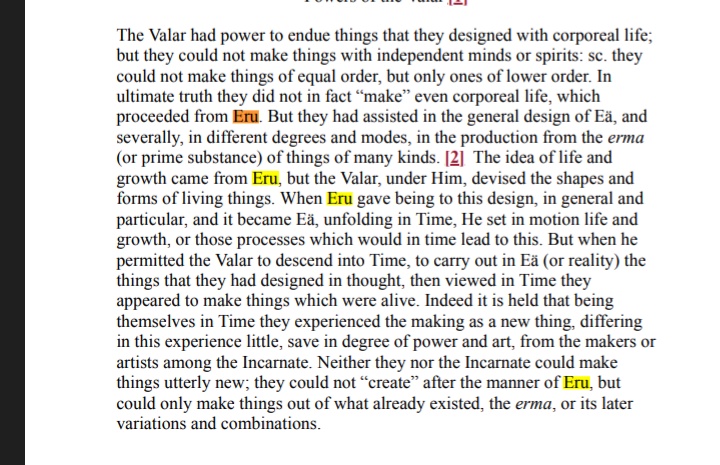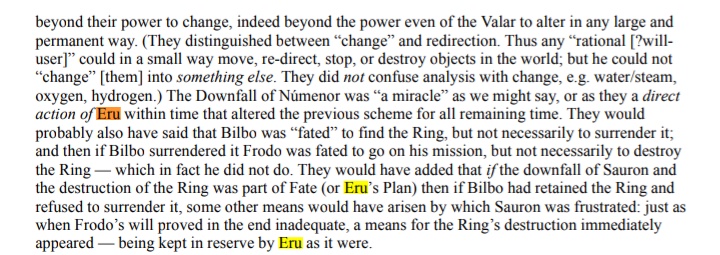– Immunity To Fate Manipulation, Transduality Type 2, Causality Manipulation Described in The Nature Of Middle Earth Eru is not at all bound by Themes, or by Ainulindale (as Ainur made it out) he is beyond fundamental things, and has absolutely no destiny. Suddenly in The Nature Of Middle Earth, Eru continued, and stopped history, and it was caused by Eru [1]. Explanation for Transduality Type 2. First we will explain Ainulindalè, it is all the concepts that are present, from metaphysics, to physical concepts. It has also been explained there that Eru is not bound by Ainulindalè and Tema, and Eru is also immune to what arises from these two concepts, as well as Eru is described with two conditions of duality at once and not both, it is clear that Eru has a qualitative advantage [2 ].

gyazo.com
– Life Creation, Fate Manipulation, and Emphatic Manipulation In the discussion of Eä when the Valar or Ainur are talking with Ìluvatar, in his statement, Life and Growth originate from Ìluvatar who created them [1]. At the time of Sauron's downfall, it was explained that it was Fate that had been ordained by Iluvatar (part of Eru plan) [2]. Every Mind and Spirit originates from Eru[3].

gyazo.com
[1]

gyazo.com
[2]

gyazo.com
[3]
@Antvasima @DarkDragonMedeus @Tyranno223 @TheMerchant66 @Hellbeast
How about this.



